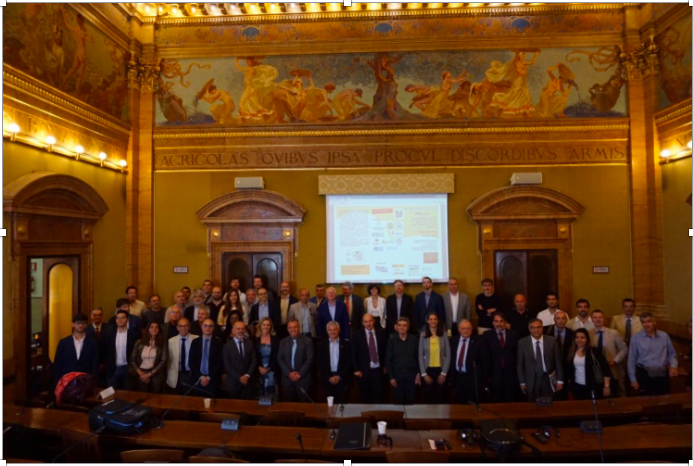Universities and companies from the SIM Project worked with farmers, irrigation consortia and water authorities to increase irrigation efficiency with precision and thrifty irrigation management systems.
On 12th June 2019 in Rome at the Italian Ministry of Agriculture, Politecnico di Milano together with the University of Tuscia, Valencia, Delft, Balearic Islands, the Chinese Academy of Science-RADI, CREA and ANBI, presented the results of the SIM project as part of the activities on irrigation savings in line with the guidelines of the Common Agricultural Policy.

The SIM group and the Italian Irrigation Consortia Representative at the Italian Ministry of Agriculture (12th June 2019) Rome, Italy.
The work aims at developing an operational tool for real-time forecasting of irrigation water requirements to support more efficient water management, providing real-time and forecasted soil moisture behaviour at high spatial and temporal resolutions with forecast horizons from few to up to thirty days.
The SIM System is an operational web-based GIS tool monitoring in real time and forecasting plant water needs for precise irrigation. This allows the required irrigation volume to be delivered only when needed, improves irrigation efficiency and creates water savings as well as savings in fertilizer and energy, compared to today’s irrigation practices.
SIM combines the most recent results of scientific research to compute soil moisture at high spatial and temporal resolution. The system combines satellite monitoring of soil moisture and of evaporative fluxes, quantitative meteorological forecasts and detailed distributed hydrological modelling of soil water balance and crop water needs, and considers the economic impacts of water savings.
System outputs are also organized as performance indicators (water, environment and economic) supporting irrigation strategies for any level of users:
- farmers who keep soil moisture in an optimum interval,
- irrigation consortia that manage the water allocation;
- water authorities that manage reservoirs.
The operative dashboards are now available for the five project case studies in Northern and Southern Italy, the Netherlands, China and Spain, all of which have different climates, water availability, crop types and irrigation systems.

